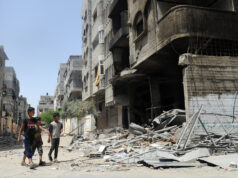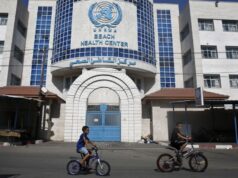On Monday, multiple car bombings hit Shiite neighborhoods across Baghdad killing about thirty people. This follows on the heels of a Sunday car bombing that killed nine at a Baghdad bus station and a suicide bombing last Thursday in which twenty-three died. Civilian deaths have been on the rise in Iraq, more than doubling over the past year and reaching numbers unseen since 2008.
Reminiscent of the sectarian violence of 2006-2007, the attacks are pitting foreign Sunni militants against local Sunni tribes as well as the Shia government of Iraq. Amid this disturbing trend, Secretary General of the United Nations Ban Ki Moon delivered a speech in Baghdad on Monday. He expressed deep concern about the weak levels of security in the western province of Anbar and the harm being inflicted on civilians. He implored Iraq’s political leaders to find common ground and to unite against their common enemy, al Qaeda-related terrorism. He also called for increased dialogue between the Iraqi government and the Sunni community, and open political participation from all sides.

People gather at the site of car bomb attack in Baghdad, January 15, 2014. (Photo: Reuters) |
Iraqi prime minister Nouri Al-Maliki responded by rejecting the Secretary General’s plea, arguing that the fighting among Sunni tribes, local police, and the Al Qaeda linked fighters from the Islamic State of Iraq and the Levant (ISIL) in Anbar province does not truly represent the problem Iraq is facing. He added that there is no partner for dialogue because the Iraqi government will never talk to terrorists (ISIL). He did not address the need for dialogue with Iraqi Sunnis, who are fighting ISIL with only limited help from the government in Baghdad.
Besides the issues affecting Iraq proper, Secretary General Ban addressed the important role Iraq plays in managing the humanitarian crisis in Syria. Iraq has taken in more than 200,000 refugees and has a critical stake in the Humanitarian Conference that will be held in Kuwait Wednesday. Without stability in western Iraq, foreign fighters can move in and out of Syria, exacerbating the civil war there and further upsetting a fragile balance of power in the region as a whole.





